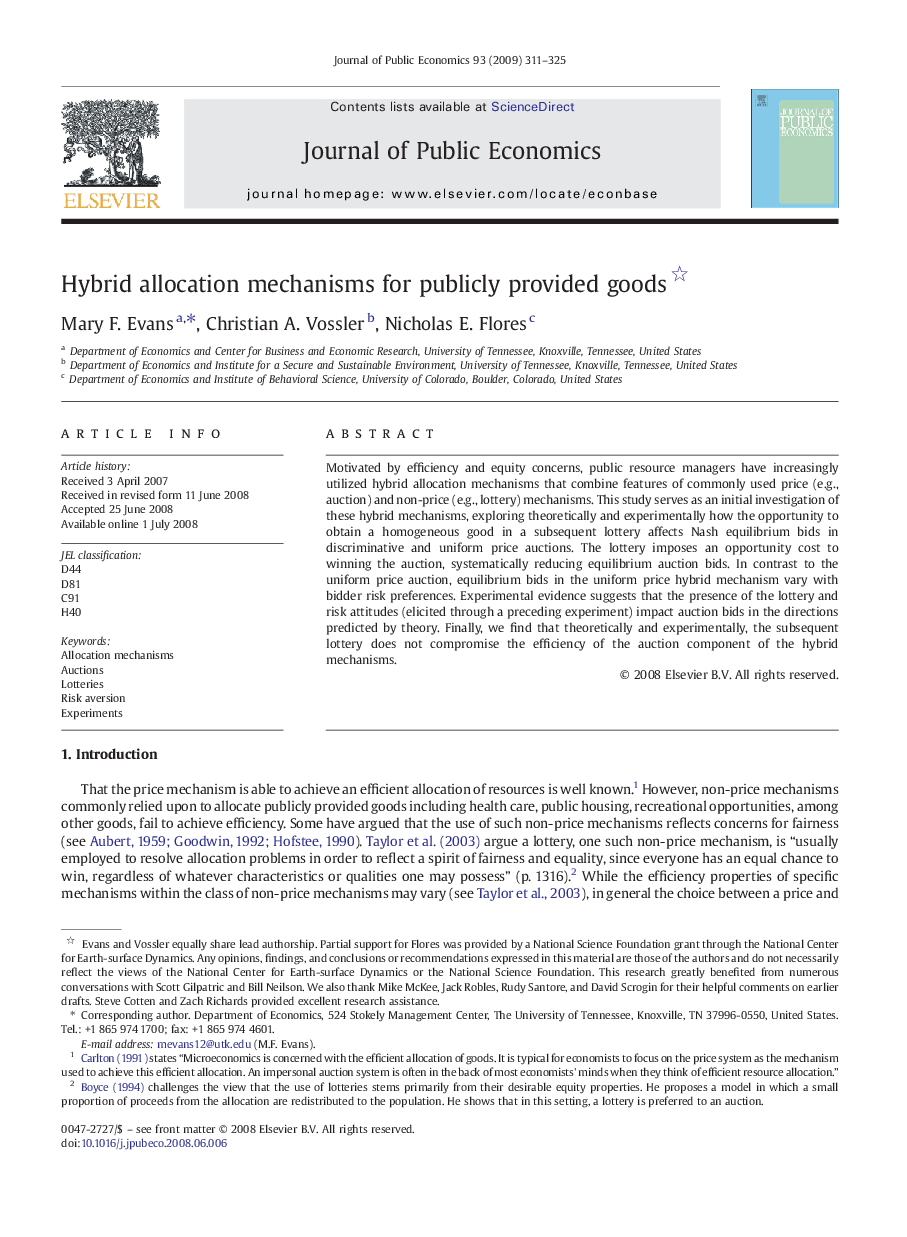| Article ID | Journal | Published Year | Pages | File Type |
|---|---|---|---|---|
| 970171 | Journal of Public Economics | 2009 | 15 Pages |
Motivated by efficiency and equity concerns, public resource managers have increasingly utilized hybrid allocation mechanisms that combine features of commonly used price (e.g., auction) and non-price (e.g., lottery) mechanisms. This study serves as an initial investigation of these hybrid mechanisms, exploring theoretically and experimentally how the opportunity to obtain a homogeneous good in a subsequent lottery affects Nash equilibrium bids in discriminative and uniform price auctions. The lottery imposes an opportunity cost to winning the auction, systematically reducing equilibrium auction bids. In contrast to the uniform price auction, equilibrium bids in the uniform price hybrid mechanism vary with bidder risk preferences. Experimental evidence suggests that the presence of the lottery and risk attitudes (elicited through a preceding experiment) impact auction bids in the directions predicted by theory. Finally, we find that theoretically and experimentally, the subsequent lottery does not compromise the efficiency of the auction component of the hybrid mechanisms.
